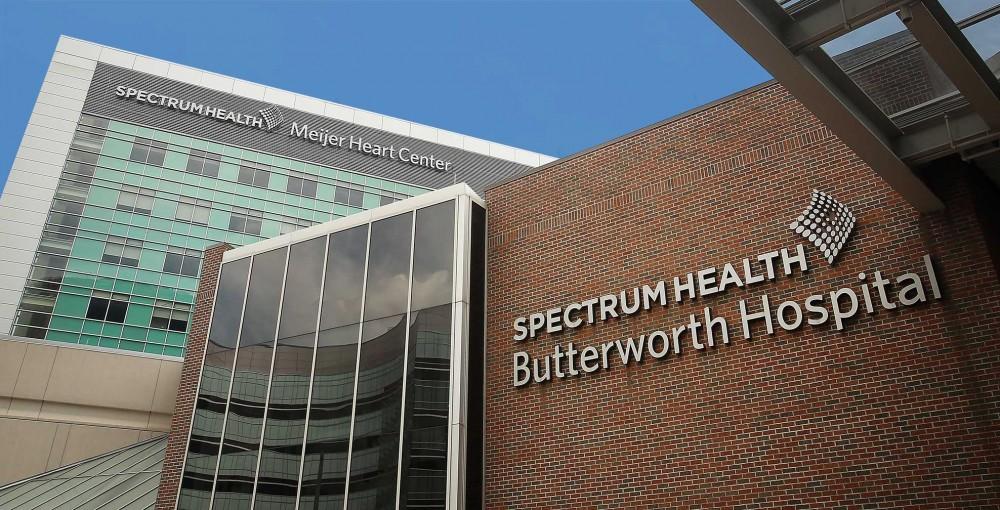Grand Rapids hospital costs, growth on the rise

Courtesy / Spectrum Health System Butterworth Hospital
Feb 25, 2019
The 2019 Health Check Report by Grand Valley State University and Tulane University determined that both the cost of hospital admissions and health care employment rates in west Michigan are higher than the state averages.
The report, which analyzed public health trends in Kent, Ottawa, Muskegon and Allegan counties, found that the average cost of a hospital stay in Grand Rapids climbed from $19,700 in 2005 to $29,900 in 2016. This is approximately $3,000 dollars more than costs in Detroit. The study cited the average hospital stay length in both cities at just under five days.
Analysts in the study attributed two main factors to the spike in hospital admission costs: increasing use of new technology and the admission of patients with more severe health problems.
Among other hospital facilities, Grand Rapids is home to Spectrum Health-Butterworth and Blodgett campuses. U.S. News ranked Spectrum Health as the fourth best hospital in Michigan and the hospital also receives national recognition in six pediatric specialties: pulmonology, cancer care, nephrology, urology, orthopedics, and cardiology and heart surgery.
Senior Vice President and Chief Financial Officer of Spectrum Health Matt Cox said that he believed the increase in hospital admission is tied to the fact that many simpler medical services are no longer treated as inpatient procedures, which is a procedure where the patient is expected to stay overnight or longer at the facility.
“With regard to the increase of total hospital expenses per admission in Grand Rapids, in looking at the trend from 2005 to 2016, I think it is easy to correlate this to the fact that more of the less complex services are now outpatient procedures, leaving sicker patients in the hospital,” Cox said. “I would also say that over this period, Spectrum Health has really moved from a tertiary center to a Quaternary center. We are offering many more high-end services that were never offered before; (people would have to travel to Detroit or Chicago).”
Cox also noted that more of the patients served at Spectrum Health are now older than usual.
“Our demographics match those of the community we serve,” Cox said. “In general, as the population (of Baby Boomers) has aged, so has our patient mix.”
MLive reported an estimate that almost one fifth of Grand Rapids’ population is 60 or older, and the 2019 Health Report Check states that “health care expenditures are closely related to age. More than 50 percent of lifetime spending on medical care occurs after the age of 65.”
At the same time that hospital admission expenses are rising, west Michigan is experiencing enormous growth in the health care sector.
According to occupational employment statistics from the U.S. Bureau of Labor that analyzed 36 health careers, 29 experienced employment growth between 2007 and 2017 in Grand Rapids, compared with only 26 in the rest of Michigan. In addition, some careers skyrocketed in Grand Rapids; for instance, the growth rate for general physicians in the city was 295.2 percent compared to a state average of 24 percent.
Last year, the College of Health Professions at GVSU gave out 252 graduate degrees and 393 bachelor’s degrees. Many alumni now hold careers around the west Michigan area, including six who are currently employed with Spectrum Health, according to GVSU’s Alumni News and Updates.

























